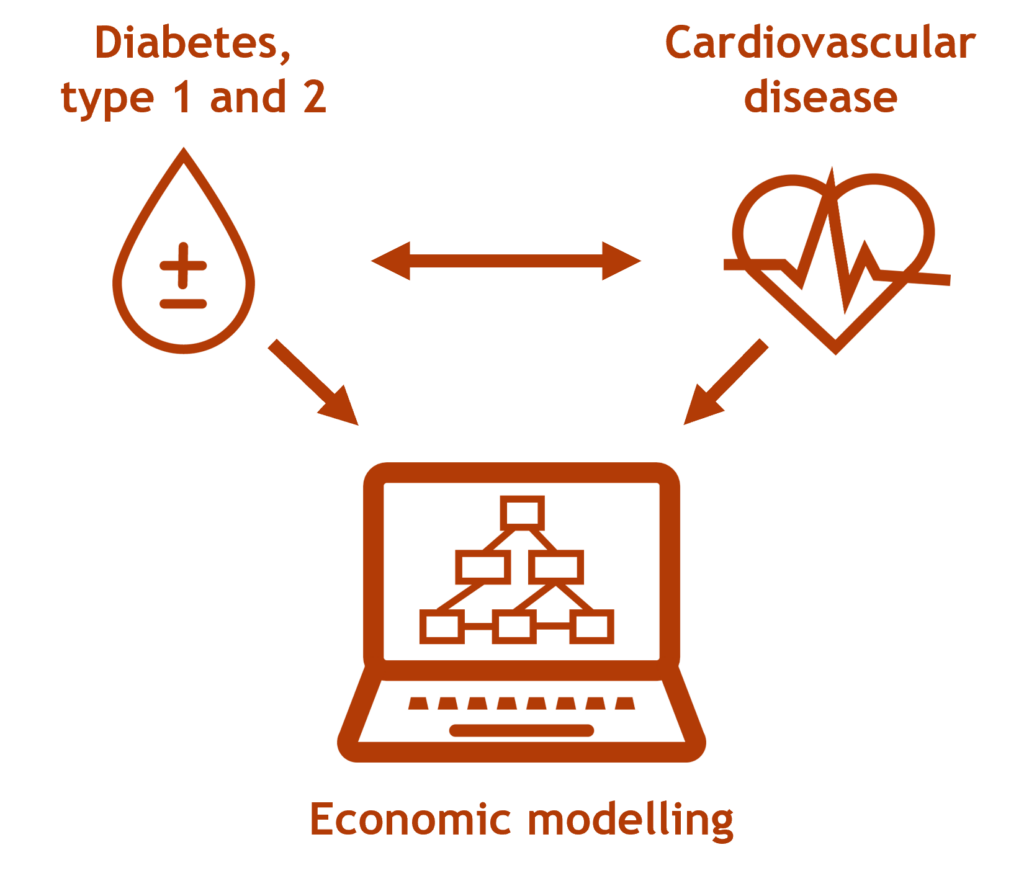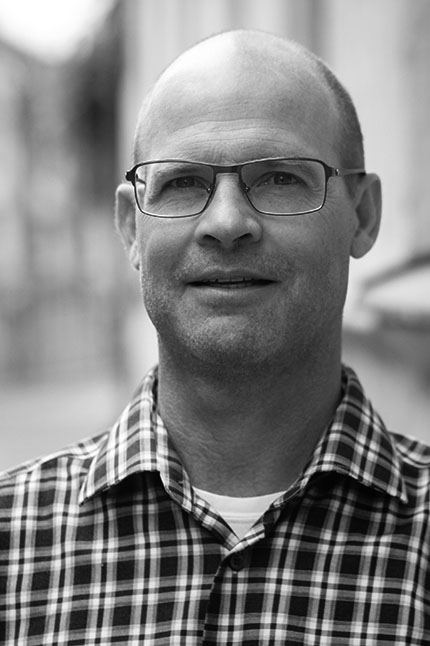The Mount Hood Diabetes Challenge: A Collaborative, Disease-Specific Model for Pursuing Improved Health Economic Modeling
The Mount Hood Diabetes Challenge, a (for-the-most-part) biennial and in-person meeting of 10+ diabetes economic modeling teams and up to 100 participants interested in diabetes modeling, has been instrumental in promoting global dialogue and innovation since its establishment in 2000.

This year developers of the IMIB and the GDM diabetes models first met and spent a weekend running standardized simulation scenarios and comparing and contrasting results on the slopes of Mount Hood in Oregon, USA.
Created by Jonathan Paiano for the Mt Hood Diabetes Challenges Network
These Challenges have included models for Type 2 diabetes, Type 1 diabetes, and cardiovascular disease.

Practically, the 1.5-day meetings are planned well in advance and scheduled to occur just before or after big conferences to facilitate good turnout. Meetings consist of Challenges, invited speakers, and individual presentations (selected from submitted abstracts). Each meeting has a theme based on current interest, for example cardiovascular outcomes trials (CVOTs) and their implications for modelling cardioprotective diabetes drugs for the 2018 meeting in Dusseldorf, Germany.
The Challenges typically involve cross-validation (i.e., comparing and contrasting model results and appropriateness of response to changes in risk factors by simulating standardized hypothetical scenarios), external validation (i.e., comparing model predictions with actual trial results to enable assessment of predictive accuracy, as well as cross-model comparisons), and uncertainty analysis (i.e., computation of Monte Carlo and parameter uncertainty and assessment structural uncertainty to quantify the robustness of model results for decision-makers).
Challenge instructions are provided to the modeling groups, who submit final results prior to the meeting. A discussion leader compiles the results and presents them during the meeting, which is followed by a group discussion with the aim of explaining results, exchanging ideas, challenging assumptions, and collectively striving to improve the performance of diabetes models. Post-conference, an author committee is formed and topics for publication are agreed upon. Seven publications have been disseminated. Challenge results are uploaded to the home page and the registry of diabetes models is updated.

IHE diabetes models have participated in the Mount Hood Diabetes Challenges since 2010, which was held in Malmö, Sweden to ensure our models remain aligned with best current practices and to share our insights.
Michael Willis, a Research Director at IHE, is a member of the Mount Hood organization committee, helping to ensure that the conferences remain a platform for open dialogue, collaboration, and process advancement.
In 2022, the Challenges returned to Malmö and IHE had the honor of hosting the conference, which featured twelve T1DM and T2DM modelling groups. IHE participated with its ECHO-T1DM, ECHO-T2DM, and IHE-DCM-T2 models, which included revisiting the Mount Hood Reference case and introducing a new and more realistic cost-effectiveness simulation scenario that mimics new developments in both T1DM and T2DM treatments.
IHE recently participated in the December 2023 Mount Hood Diabetes Challenge in Kuala Lumpur, Malaysia, which repeated the 2022 Challenges using an Asian population to consider differences in population characteristics, responsiveness to treatment, and costs and utilities. This was also the first time IHE-DCM-T2 results using its new set of risk equations based on the Japan Diabetes Complications Study/Japanese Elderly Diabetes Intervention Trial risk engine (JJRE) were presented. Publications of the findings are currently under preparation.
As we look ahead, the Mount Hood Diabetes Challenge Network serves as a model for other disease areas, highlighting the potential of collaborative initiatives to drive progress in healthcare economics. Modeling teams in a few other disease areas like (COPD and dementia) have followed suit.
Modeling teams in other disease areas seeking to start something akin to the Mount Diabetes Challenge Network are encouraged to contact IHE for advice (diabetesmodelling@ihe.se)!
Read more about the Mount Diabetes Challenge Network
Read more about health economic modelling
Authors



